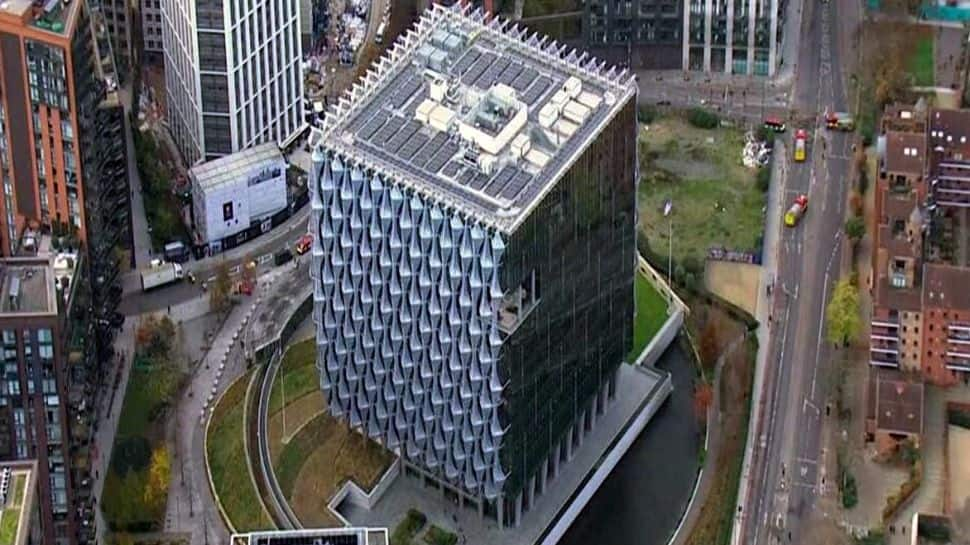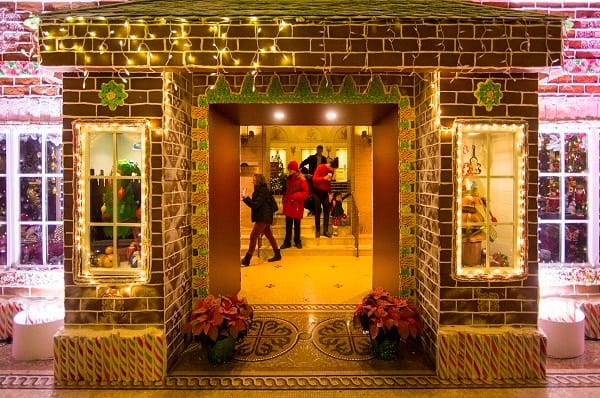Fashion
Elizabeth Tobi: Celebrating African culture and sustainability at London Fashion Week

In a world where fashion lovers want cheap, latest and trendy designs which are quickly discarded, Elizabeth Tobi is setting a new trend toward sustainability and cultural authenticity. Elizabeth Tobi emerges as a pioneering brand that bridges tradition and modernity. This luxury ethical fashion brand specialises in African-inspired clothing, combining vibrant prints, handwoven fabrics, and upcycled denim into timeless and stylish pieces for today’s woman. Elizabeth Tobi is reinventing an utterly modern approach to fashion, pushing boundaries and setting trends, shaping the fashion landscape with her modern African-inspired designs. “We want to showcase African culture in a way that feels modern, fresh, and timeless,” explains creative director of Elizabeth Tobi. “Our pieces are not just fashion statements; they are cultural statements.”
The London Fashion Week presents a perfect opportunity to share with the world her recent collection (Reverie Ikigai). The collection is not just visually captivating but also deeply meaningful and purposeful. It speaks of the fusion of dreams, purpose, artistry and intention. The collection conveys a sense of timelessness, cultural depth, and artistic inspiration, perfectly encapsulating the brand’s ethos.
The runway show was put together by Fashions Finest (supported by Mayor of London) in the heart of London at the Steel yard. Elizabeth Tobi mission was to showcase luxurious, ethical fashion items that celebrates African heritage while championing sustainability and inclusivity.
This was achieved by seamlessly blending vibrant African wax prints (Ankara), handwoven fabrics(AsoOke), and upcycled denim to craft timeless, wearable works of art for stylish women. Each piece in the collection incorporates upcycled materials, from denim to leftover fabrics, reducing waste while creating something entirely new and stunning. The brand showcased commitment to responsible craftsmanship, cultural storytelling, and conscious design, with the aim to bridge the gap between street, casual, and cultural fashion, empowering women to express their unique beauty with purpose and pride. The designer believes in fashion that not only looks good but does good for people and the planet.
The fashion industry is said to be responsible for 2-8% (1.2 billion tonnes of CO2) of the global carbon emission which is more than the combination of the emission from all international flights, maritime and shipping.
Aside from the carbon emission, the fashion industry also consumes 215 trillion litres of water annually. During the pandemic, the UK recorded a significant number of disposed clothing (estimated at 67 million) which end up in landfill or furnaces. About £82 million is used by the UK in landfilling and incineration of clothing items.
The intensive labour required in garment production as well as long supply chain further contributes to the degrading of the environment and climate change. There has been a steady rise in clothing demands, and if this continues, the industry will miss its carbon budget by more than 26% in 2050 and contribute to the rise in global warming temperature of more than 2OC

The presence of Elizabeth Tobi creations on the runway during the London FashionWeek not only brought to the fore the problem of fast fashion and climate change but also emphasizing on how slow fashion can be the game changer in saving the planet as fashion lovers. Fashion enthusiasts and consumers need to become more conscious of their impact, as Elizabeth Tobi offers a powerful alternative: fashion that doesn’t sacrifice beauty or quality for responsibility.
Ethical fashion involves a mindful and careful approach to the production of clothing items, with a strong emphasis on the well-being of individuals involved in the production, communities, and the impact on the environment. The crux of ethical fashion is ensuring good labour conditions, reduced carbon footprint, and the elimination of abuse or exploitation throughout the production process of fashion items. Brands like Elizabeth

Tobi embracing ethical fashion are committed to sustainable methodologies, fair trade, which does not involve abuse or exploitation throughout the supply chain. Elizabeth Tobiis taking into account the effects of fashion on the environment and looking at ways to minimise the effects and preserve the environment.
“When you shop for new clothes, you’re probably not thinking about the climate. But making apparel creates carbon pollution, and the industry’s emissions are on the rise as people buy – and discard – their clothes more frequently. The problem is made worse by the rise of fast fashion – clothes that are cheap to make and cheap to buy.”—Stephanie Manuzak
The designer who holds a Masters degree in Fashion design from a prestigious university in England, not only shown her creativity, but also showcased her problem-solving capabilities.
This not only elevated the profile of the designer but also further highlighted the significant impact of African inspired fashion and slow fashion on a global scale.

As a fashion style editor, featuring and highlighting the inspirational journey and designs of this UK based designer in the context of their participation in the London Fashion Week would serve as a great testament to the fusion of culture, innovation, and creativity in the world of fashion.
It would also shed light on the growing recognition of African inspired fashion and their invaluable contributions to the global fashion landscape.










